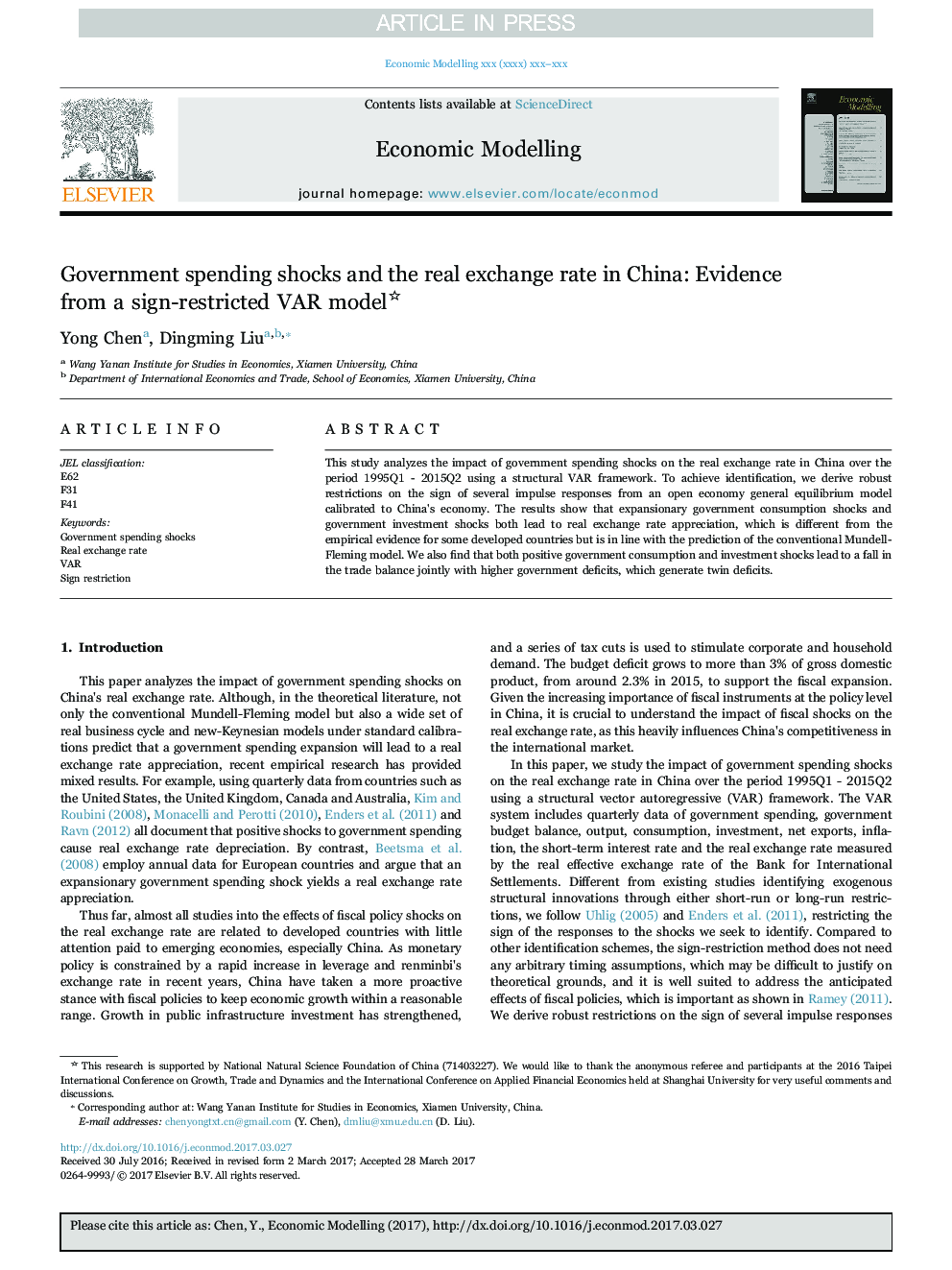| Article ID | Journal | Published Year | Pages | File Type |
|---|---|---|---|---|
| 7347775 | Economic Modelling | 2018 | 12 Pages |
Abstract
This study analyzes the impact of government spending shocks on the real exchange rate in China over the period 1995Q1 - 2015Q2 using a structural VAR framework. To achieve identification, we derive robust restrictions on the sign of several impulse responses from an open economy general equilibrium model calibrated to China's economy. The results show that expansionary government consumption shocks and government investment shocks both lead to real exchange rate appreciation, which is different from the empirical evidence for some developed countries but is in line with the prediction of the conventional Mundell-Fleming model. We also find that both positive government consumption and investment shocks lead to a fall in the trade balance jointly with higher government deficits, which generate twin deficits.
Related Topics
Social Sciences and Humanities
Economics, Econometrics and Finance
Economics and Econometrics
Authors
Yong Chen, Dingming Liu,
